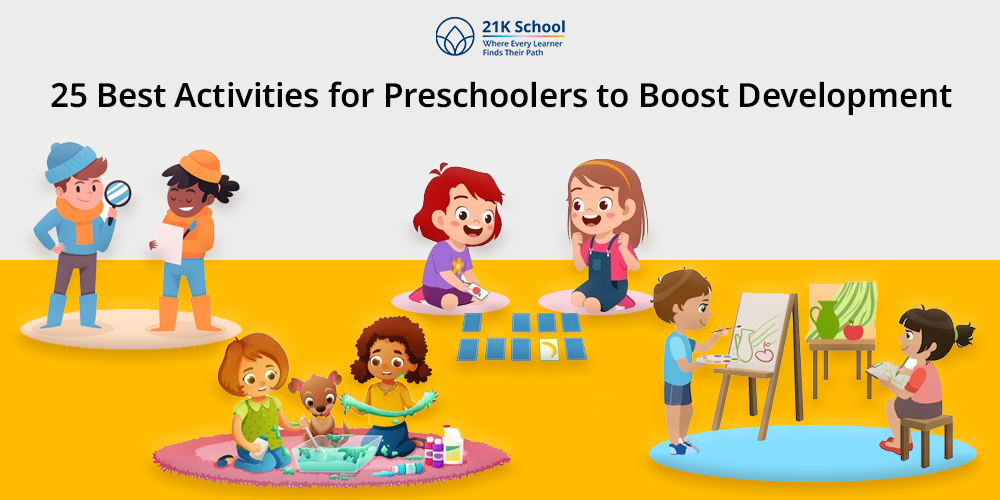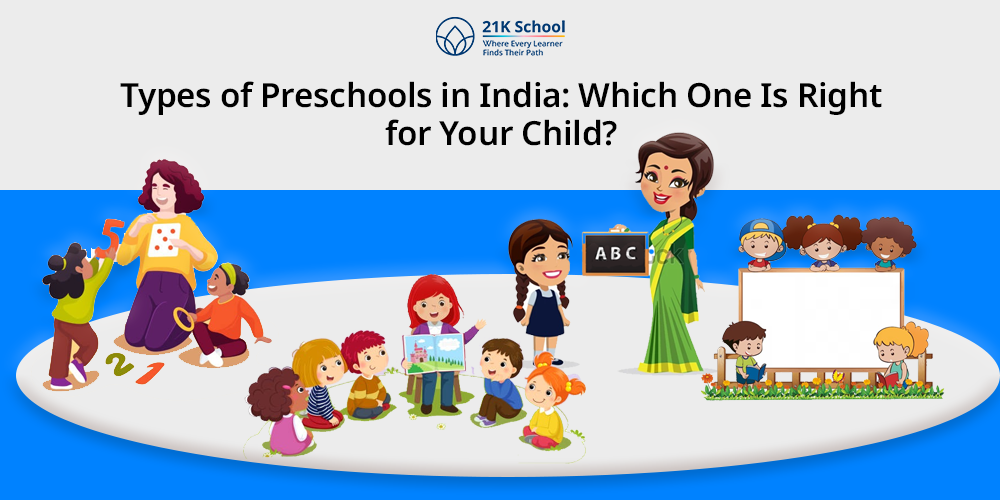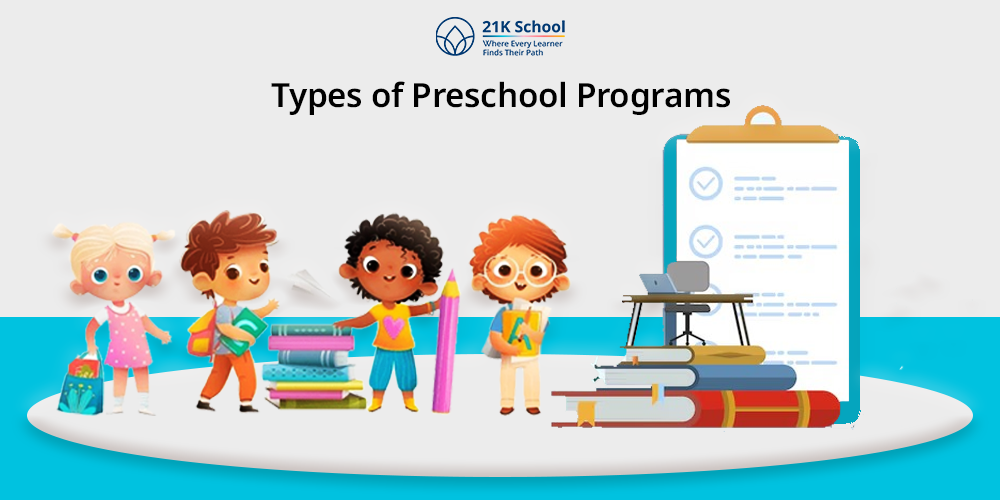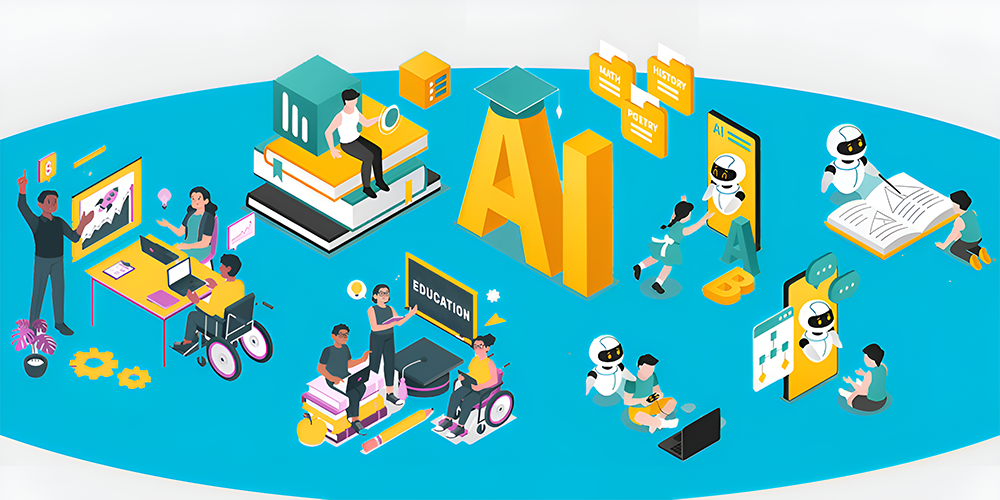
Contents
Introduction to AI in Education
Artificial Intelligence (AI) has been making waves across various sectors, and the field of education is no exception. In this context, we’ll delve deep into the understanding of AI and its emergence in education.
Understanding AI
Artificial Intelligence, often abbreviated as AI, refers to the simulation of human intelligence processes by machines, especially computer systems. These processes include learning, where the system acquires information and rules for using the information, reasoning, where the system uses rules to reach approximate or definite conclusions, and self-correction.
In the realm of education, AI can take on several roles. It can automate administrative tasks, assist students with learning at their own pace, provide personalized learning experiences, and offer tutors and teachers valuable insights about student performance. This technology holds tremendous promise for enhancing learning and teaching processes. To understand more about how AI works in education, you can read our article on AI in education.

The Emergence of AI in Education
The adoption of AI in education has been a gradual process. Initially, AI found its way into administrative tasks in educational institutions, such as grading and scheduling. However, its capabilities soon extended to more student-centric applications, such as personalized learning and adaptive testing.
One key area where AI has made significant strides is in Intelligent Tutoring Systems. These systems use AI to provide personalized instruction to students, based on their unique learning styles and pace. For more details, visit our blog on intelligent tutoring systems.
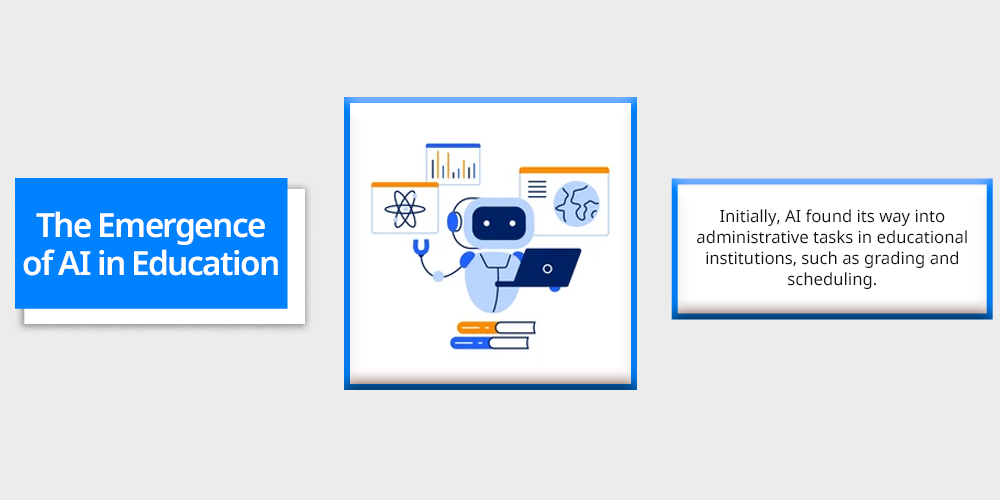
AI’s role in education has grown even more vital with the advent of data analytics. This involves the use of AI to analyze student performance data to detect patterns, predict outcomes, and provide actionable insights. This has proven particularly beneficial in higher education, where data-driven decision-making is essential. Learn more about this in our article on data analytics in education.
The rise of AI in education is not just about technology. It’s about transforming the way we teach and learn, making education more accessible, personalized, and effective. As we delve deeper into this article, we will explore the potential of AI in special education and how it can support students with unique learning needs.
AI and Special Education
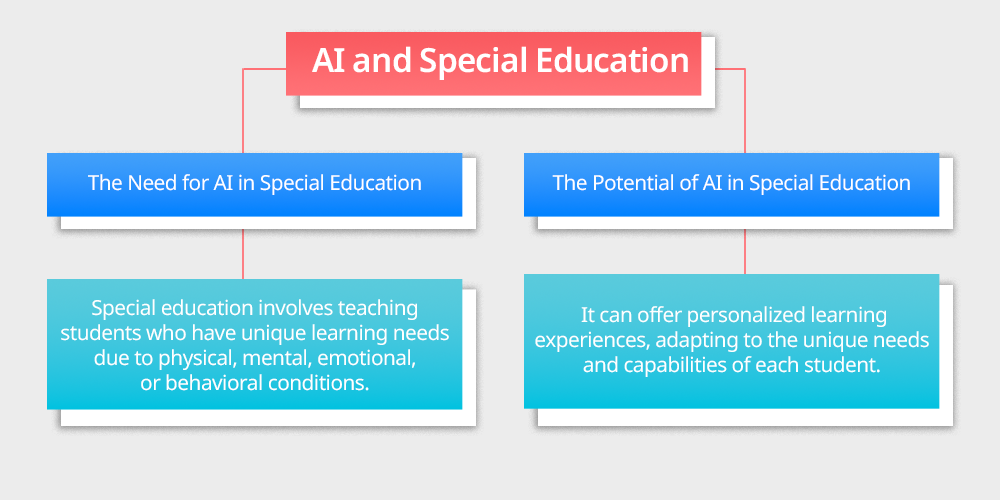
The realm of special education presents unique challenges that require innovative solutions. This is where Artificial Intelligence (AI) comes into play. AI presents an opportunity to enhance and transform special education, making it more personalized, effective, and accessible.
The Need for AI in Special Education
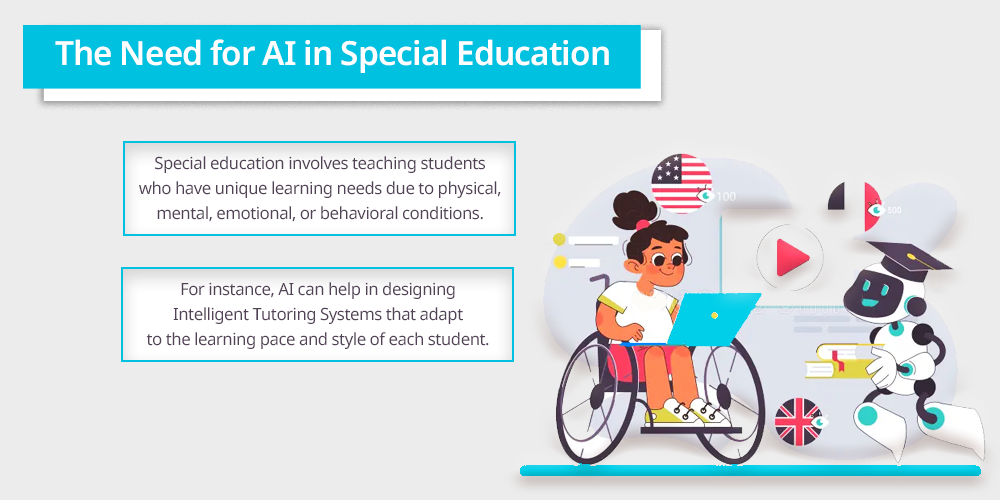
Special education involves teaching students who have unique learning needs due to physical, mental, emotional, or behavioral conditions. These students often require individualized educational programs to meet their specific learning needs. Traditional classroom settings and teaching methodologies may not always suffice to cater to these diverse needs.
The application of AI in special education can help address these challenges. AI-powered tools and technologies can provide personalized learning experiences, aid in skill development, and improve accessibility for students with special needs. For instance, AI can help in designing Intelligent Tutoring Systems that adapt to the learning pace and style of each student. AI can also assist in data collection and analysis, helping educators understand student performance and devise effective teaching strategies.
The Potential of AI in Special Education
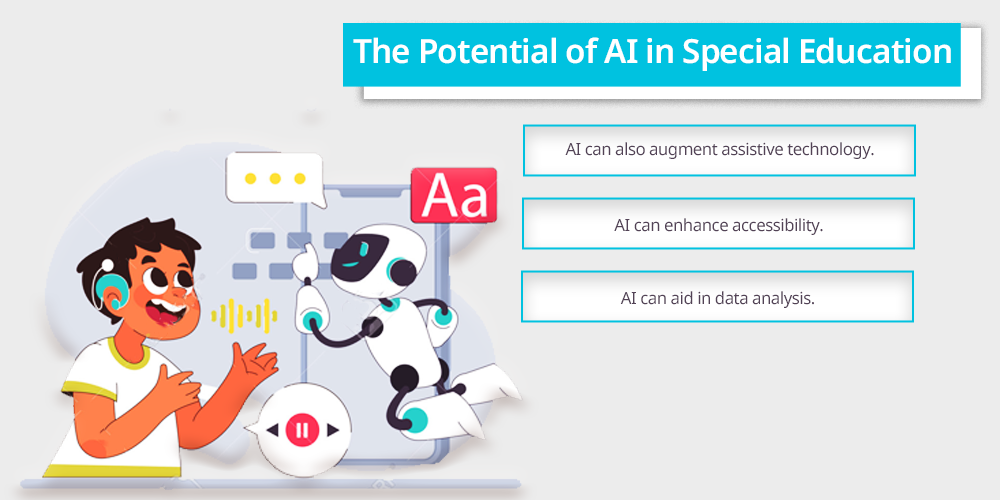
AI holds immense potential in the field of special education. It can offer personalized learning experiences, adapting to the unique needs and capabilities of each student. This personalization can maximize learning outcomes and facilitate skill development.
AI can also augment assistive technology. For instance, AI-powered speech recognition tools can help students with speech impairments communicate effectively. Similarly, AI-powered predictive text tools can assist students with dyslexia in writing.
Moreover, AI can enhance accessibility. AI-powered tools can translate text into speech for visually impaired students and interpret speech into text for hearing-impaired students.
Furthermore, AI can aid in data analysis. AI algorithms can analyze student data to identify learning patterns, predict performance, and suggest personalized learning paths.
The potential of AI in special education extends beyond these applications. Continuous advancements in AI technology promise even more innovative solutions to address the challenges in special education. For more insights into the potential of AI in education, check out our article on the benefits of AI in education.
By harnessing the potential of AI, we can ensure that every student, regardless of their learning needs, has the opportunity to learn, grow, and thrive. The integration of AI in special education can transform the way special education is delivered, making it more personalized, effective, and inclusive.
How Can AI Help Students With Disabilities?
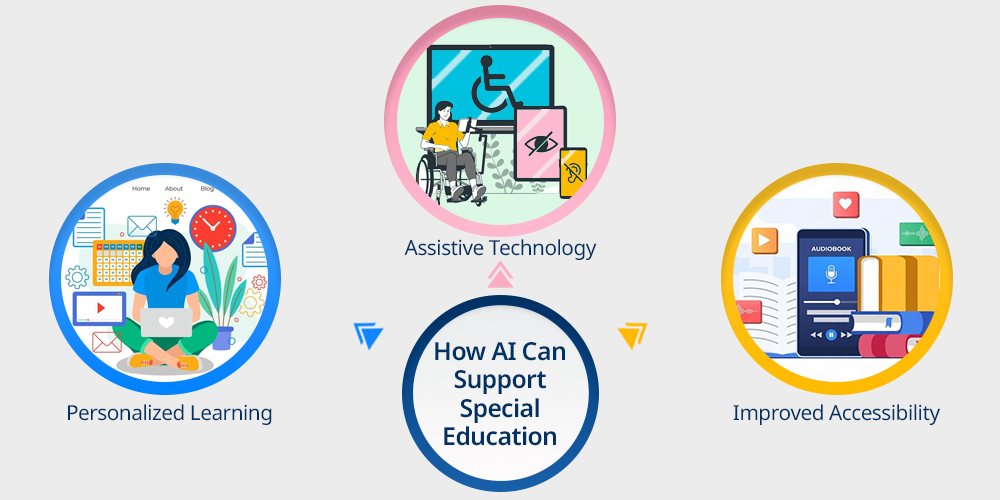
The potential of AI in special education is being recognized by educators and researchers worldwide. The technology promises to bring significant changes to the way special education is delivered, making it more personalized, effective, and accessible. Here are some ways how AI can support special education.
Personalized Learning
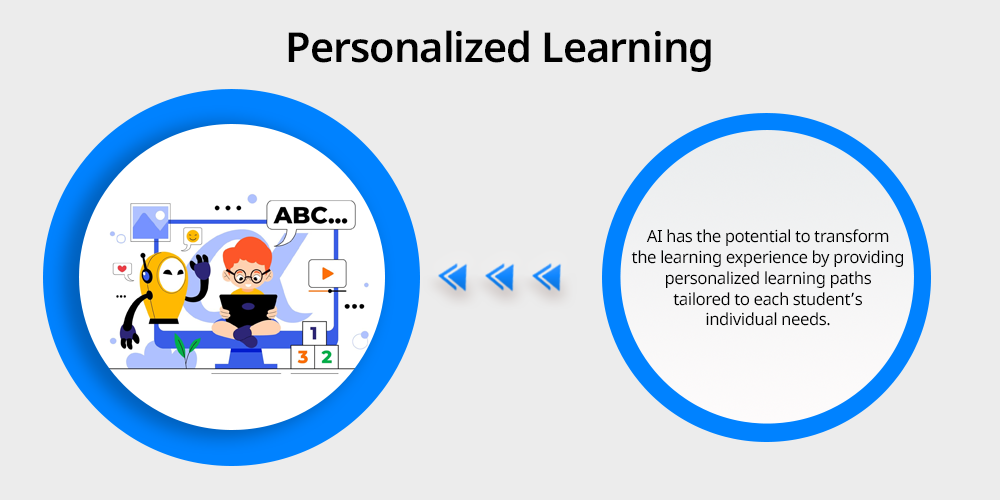
AI has the potential to transform the learning experience by providing personalized learning paths tailored to each student’s individual needs. Through advanced algorithms and machine learning, AI can analyze each student’s learning patterns, strengths, and weaknesses, and adapt the educational content accordingly. This approach can be particularly beneficial for students with special needs, who often require a more individualized approach to learning.
AI-powered tools like intelligent tutoring systems can provide personalized instruction and feedback, helping students to progress at their own pace. They can also identify areas where the student might be struggling and adjust the learning material to address these challenges. This level of personalization can result in a more engaging and effective learning experience, helping special education students to reach their full potential.
Assistive Technology
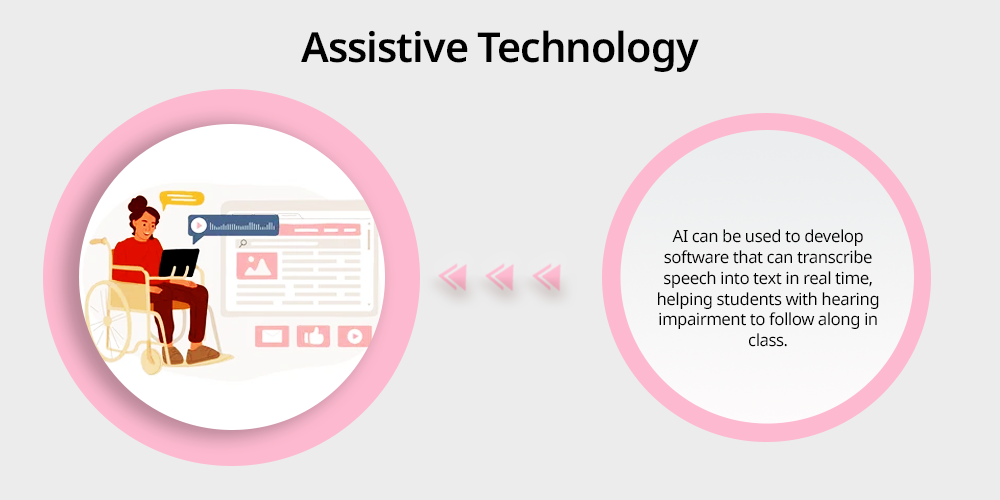
AI can also play a crucial role in the development of assistive technology for special education. From speech recognition software to AI-powered prosthetics, these technologies can greatly enhance the learning and living experience of students with disabilities.
For instance, AI can be used to develop software that can transcribe speech into text in real time, helping students with hearing impairment to follow along in class. Similarly, AI-powered software can convert text into speech, assisting students with visual impairments in their learning process.
The development of these technologies is not only making education more accessible to students with special needs, but also empowering them to participate more fully in the learning process.
Improved Accessibility
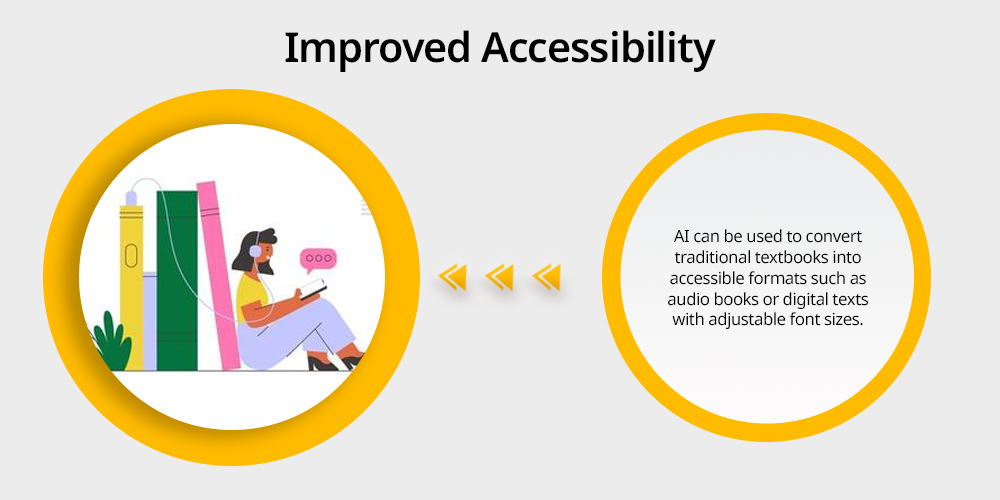
AI can greatly improve accessibility in special education, making learning materials more easily available to students with disabilities. For example, AI can be used to convert traditional textbooks into accessible formats such as audio books or digital texts with adjustable font sizes.
Moreover, AI-powered predictive analytics can help educators to identify potential learning obstacles and provide timely intervention. By analyzing data on student performance and behavior, AI can predict which students might be at risk of falling behind and suggest strategies to help them catch up. This proactive approach can lead to better learning outcomes and a more inclusive educational environment.
In conclusion, the role of AI in special education cannot be overstated. By providing personalized learning experiences, developing assistive technologies, and improving accessibility, AI is poised to revolutionize special education. As we continue to explore the potential of AI in this field, it’s important for educators, parents, and students to stay informed and embrace the opportunities that this technology brings. For more insights on the role of AI in education, visit our blog on AI in Education.
Real-World Applications of AI in Special Education
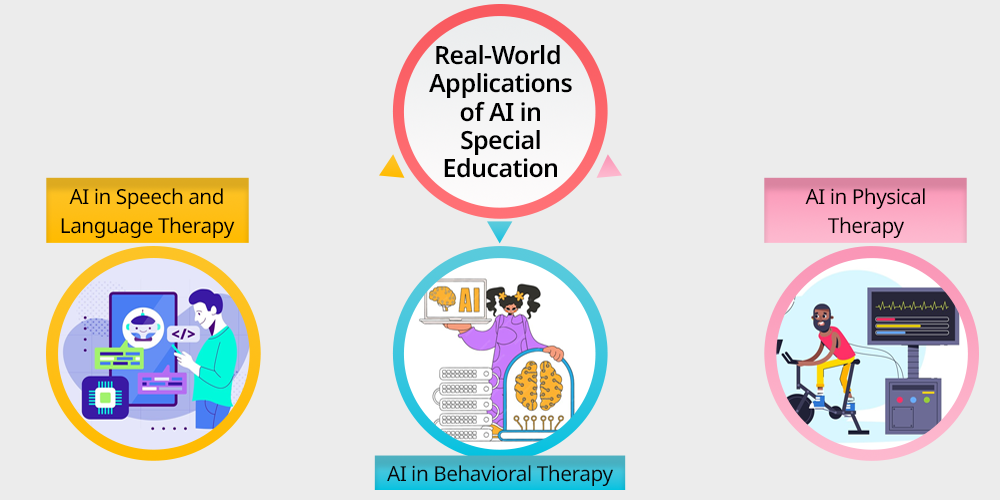
The potential of AI in special education extends to various areas, including speech and language therapy, behavioral therapy, and physical therapy. This section will delve into how AI has been utilized effectively in these areas.
AI in Speech and Language Therapy
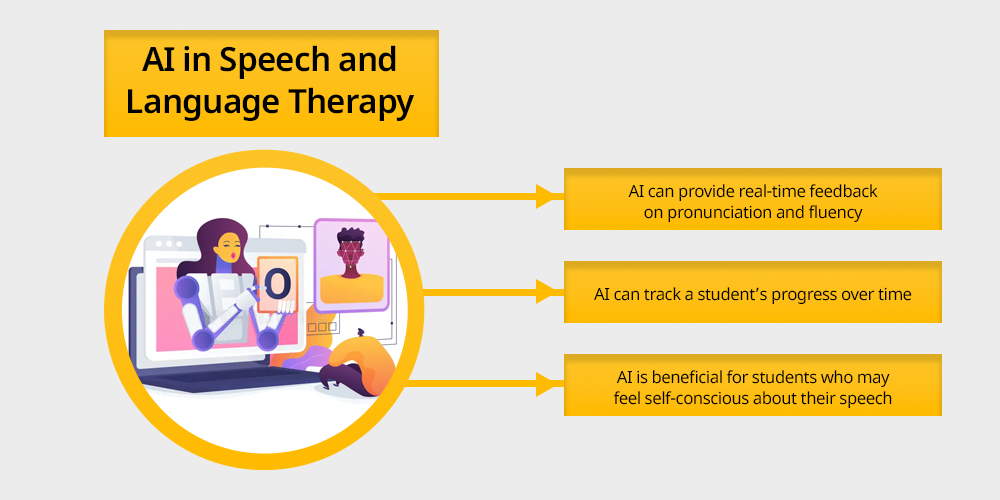
Artificial Intelligence has shown promising results in speech and language therapy, particularly for students with speech and language impairments. AI-powered applications can analyze a student’s speech patterns, identify areas of improvement, and provide personalized exercises to help improve their speech and language skills.
For example, AI can provide real-time feedback on pronunciation and fluency, making speech therapy more accessible and personalized. Additionally, AI can track a student’s progress over time, allowing therapists and educators to adjust the therapy program as needed.
This use of AI is particularly beneficial for students who may feel self-conscious about their speech and language abilities, as it allows them to practice in a safe and non-judgmental environment. For more on this, read our article on AI in language learning.
AI in Behavioral Therapy
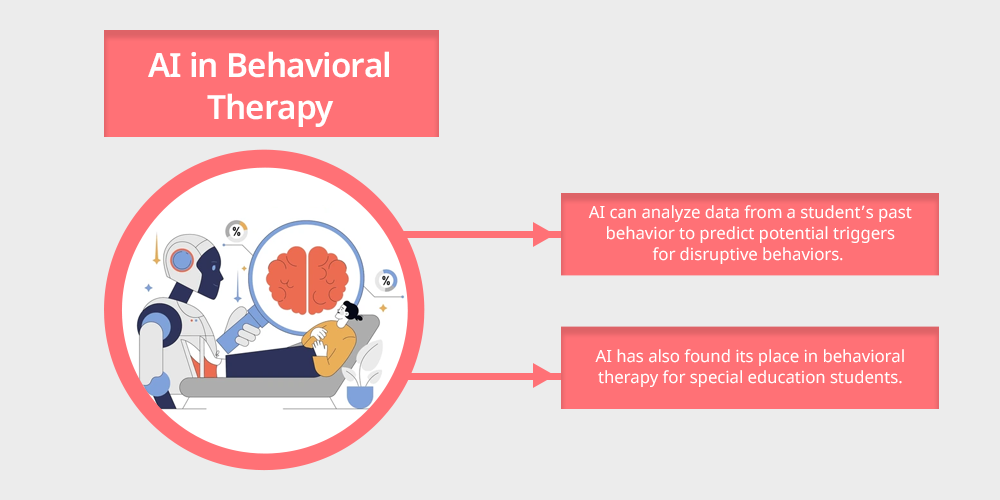
AI has also found its place in behavioral therapy for special education students. It can help identify patterns in a student’s behavior, predict potential challenges, and suggest personalized strategies to address these challenges.
For instance, AI can analyze data from a student’s past behavior to predict potential triggers for disruptive behaviors. This allows educators and therapists to proactively manage these triggers, reducing the occurrence of disruptive behaviors and improving the student’s learning environment.
The use of predictive analytics in education is a growing trend that can significantly benefit special education.
AI in Physical Therapy
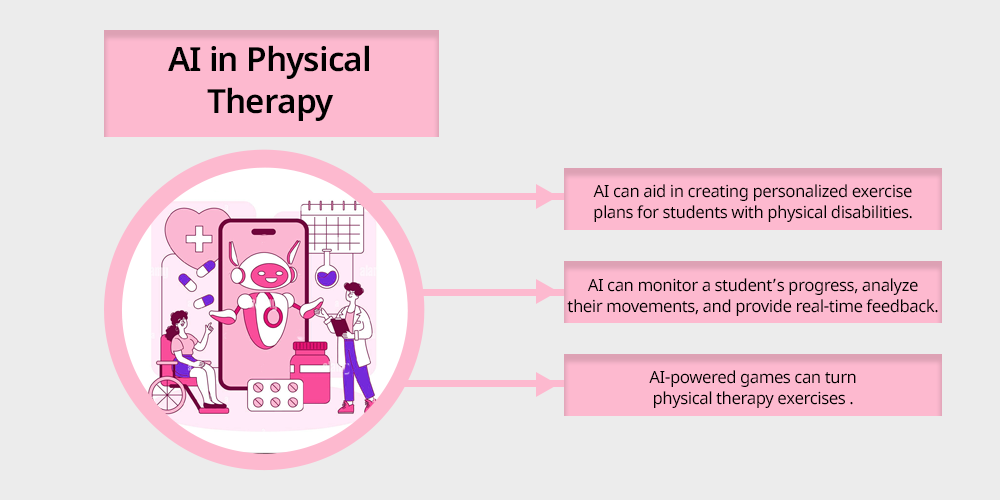
In the realm of physical therapy, AI can aid in creating personalized exercise plans for students with physical disabilities. Using AI, therapists can create adaptive exercise plans that consider the student’s unique needs and abilities.
Additionally, AI can monitor a student’s progress, analyze their movements, and provide real-time feedback. This can help improve the effectiveness of the therapy and ensure that the student is performing the exercises correctly, reducing the risk of injury.
The integration of AI in physical therapy also makes therapy more engaging for the student. For instance, AI-powered games can turn physical therapy exercises into an interactive and enjoyable experience.
The use of AI in special education is a prime example of the transformative power of AI in education. By leveraging AI, we can create a more inclusive, personalized, and effective educational experience for all students.
The Future of AI in Special Education
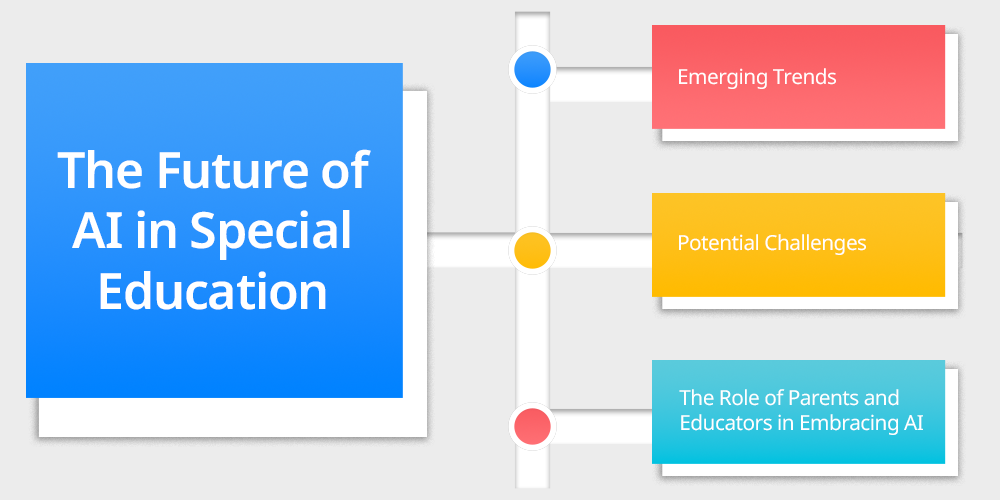
As the integration of AI in special education continues to evolve, it’s crucial to look ahead to what the future may hold. This includes identifying emerging trends, understanding potential challenges, and recognizing the vital role parents and educators play in embracing AI.
Emerging Trends
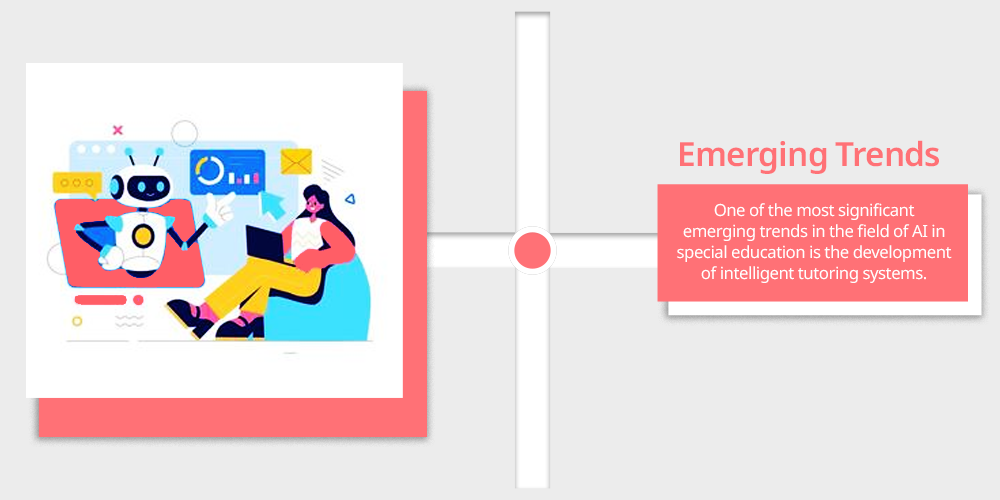
One of the most significant emerging trends in the field of AI in special education is the development of intelligent tutoring systems. These systems utilize AI to provide personalized instruction tailored to each student’s unique learning needs. They can adapt in real-time to a student’s performance, providing immediate feedback and adjusting the difficulty level as needed. For more on this trend, read our post on intelligent tutoring systems.
Another promising trend is the use of predictive analytics. This involves using AI to analyze data and make predictions about a student’s future performance or behavior. This information can be used to identify potential learning difficulties before they become significant problems. Learn more about this in our predictive analytics in education article.
Potential Challenges
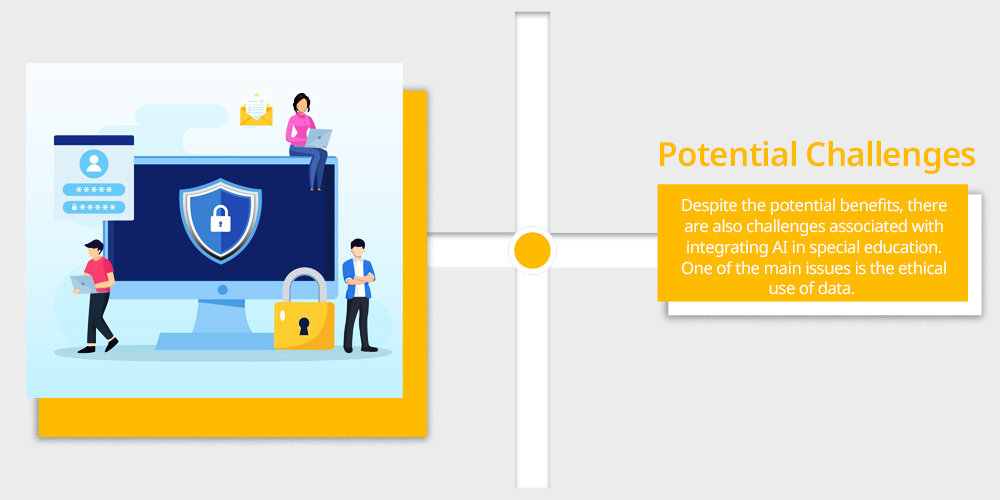
Despite the potential benefits, there are also challenges associated with integrating AI in special education. One of the main issues is the ethical use of data. As AI systems often require access to personal data to function effectively, ensuring this data is used responsibly and securely is paramount.
Another challenge is the digital divide. Not all students have equal access to technology, which can lead to disparities in the benefits received from AI. Efforts must be made to ensure that the use of AI in special education is inclusive and accessible to all students.
Lastly, there is the challenge of keeping the human touch in education. While AI can provide valuable support, it cannot replace the essential role of human teachers in providing emotional support and understanding the nuanced needs of each student.
The Role of Parents and Educators in Embracing AI
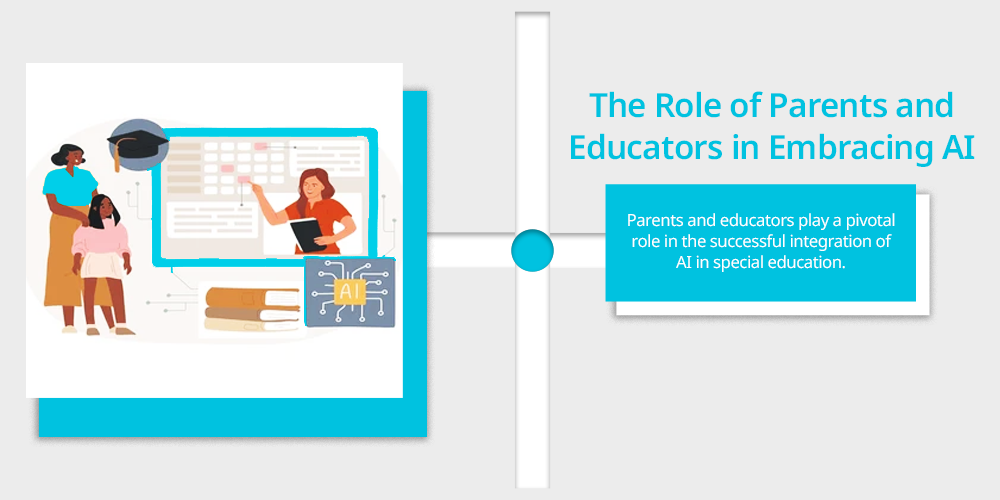
Parents and educators play a pivotal role in the successful integration of AI in special education. By staying informed about the latest developments and understanding the potential benefits and challenges, they can help to shape a future where AI is used effectively and ethically.
Educators can leverage AI to provide more personalized and inclusive learning experiences, while parents can support their children’s learning at home with AI-powered tools. Both parties should also be advocates for responsible data use and equal access to AI technology.
As AI continues to evolve, it’s crucial that everyone involved in special education from teachers and parents to policymakers and technologists work together to ensure that the benefits of AI are realized in a way that is fair, ethical, and beneficial for all students. Learn more about the benefits of AI in education.

